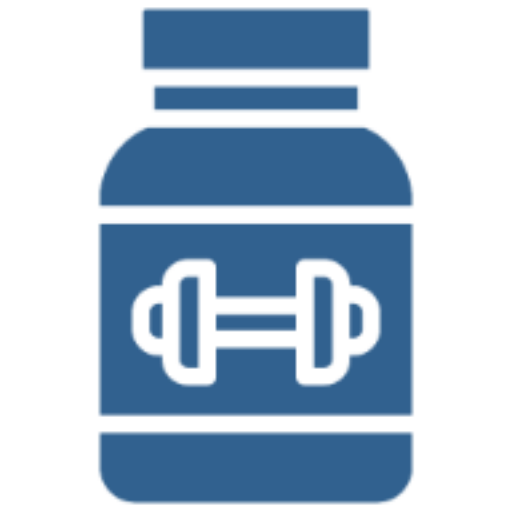What are simple carbs?
Simple Carbs
Carbohydrates are one of the macronutrients (alongside fats and proteins) whose main function is to provide the body with energy. Carbohydrates are somewhat unpopular due to the misconception that they cause weight gain. This popular misconception leads some to completely eliminate carbohydrates from their diets. Carbohydrates do not cause weight gain and eliminating them from your diet causes you to miss out on some important health benefits. While eliminating all carbohydrates is a bad idea, differentiating the good from the bad improves overall health.
What are Carbohydrates?
Carbohydrates provide the body with energy and should account for about 50% of daily calorie intake. All carbs (simple and complex) contain four calories per gram. Carbs are made up of varying amounts of sugar molecules linked together in a chain. Some carbs are made up of just a single sugar molecule while others have tens, hundreds or even thousands of sugar molecules.
Carbohydrates made up of a few sugar molecules are known as simple carbs (also called bad/unhealthy carbs or sugars) while those made up of hundreds or thousands of sugar molecules are known as complex carbs (also called good/healthy carbs).
Simple Carbohydrates
Simple carbs are made up of just a few sugar molecules. The number of sugar molecules in a carbohydrate largely determines the speed at which the body digests and absorbs it. Digestion/absorption speed has important health implications.
When you eat, you get full. Different foods provide varying degrees of satiety. Foods that keep you full for a long period of time help you eat less throughout the day while foods that keep you full for a short period of time do the opposite.
Simple carbs are digested quickly and do little to quell hunger for a significant period of time. This causes you to eat more throughout the day, making it difficult to eat an appropriate amount of calories.
A high intake of simple carbs has been associated with obesity, type 2 diabetes and heart disease. A diet high in simple carbs and low in more nutritious foods does not provide important health benefits such as a lower risk of developing cancer, lower blood pressure/cholesterol and better hunger management.
When to Eat & Avoid Simple Carbohydrates
Simple carbs release a lot of energy in a short period of time making them a great fuel source for exercise. A perfect pre/intra-workout snack is a sports drink (Gatorade/Powerade) because it is made up almost entirely of simple carbs/sugars and therefore digested/absorbed very quickly.
You also need simple carbs after exercise. The body stores sugar in the form of glycogen in the liver and muscle tissue. During exercise, glycogen stores decrease dramatically. After exercise, the body’s first priority is to restore those energy stores. Without a dietary source of simple carbs, the body breaks down muscle tissue to replenish glycogen stores. Consuming simple carbs after a workout prevents muscle breakdown and starts the recovery process.
Limit your intake of simple carbs to before, during and after exercise. Meals high in simple carbs do little to fill you up. Eating 300 calories of simple carbs (soda, candy) does nothing compared to 300 calories of other foods. At the end of the day, total calorie intake matters more than the source of those calories, however, eating an abundance of simple carbs makes it difficult to stay within an appropriate calorie range.
Sources of Simple Carbs
Simple carbs are typically found in foods high in calories but low in nutrients: empty calories. Empty calories are great a source of energy but lack essential nutrients such as: fiber, vitamins, minerals, protein and antioxidants.
Sources of simple carbs include: soda, fruit juice, white bread/pasta, candy, baked goods (cookies, muffins, cakes) and any food whose main ingredient is sugar, high fructose corn syrup or white flour (check the nutrition label).
Weight Control
The relationship between how many calories you burn and eat determines weight. If you burn more energy than you eat (calorie deficit), you lose weight. If you eat more than you burn (calorie surplus), you gain weight. There is no way around this equation. Weight control is dependent on the relationship between energy burned and eaten rather than the source of calories. Improving overall health is dependent on both.
Use the calorie calculator to figure out how many calories you burn each day.
The Bottom Line
Simple carbs are associated with sugar rushes/crashes, poor hunger management and obesity. While simple carbs are a great way to increase energy levels during exercise, they are a poor choice to build a diet around. Replacing simple carbs with healthier options (fiber, complex carbs, lean proteins and unsaturated fats) lowers calorie intake, promotes weight loss and improves health.












